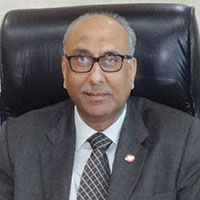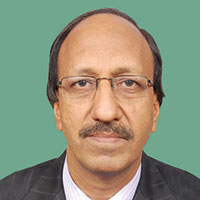From more stringent measures to deal with bad loans to providing incentives to boost savings, bankers and analysts expect the government to make important reforms for the sector in the budget
More initiatives to streamline credit process
 M Narendra, CMD, Indian Overseas Bank, Due to the economic slowdown, the banking sector was facing constraints under increase in impaired assets, higher provisioning, and interest reversal on restructured accounts resulting in lower operating margins as far as profitability is concerned. Further, credit growth was sluggish in the last two years.
M Narendra, CMD, Indian Overseas Bank, Due to the economic slowdown, the banking sector was facing constraints under increase in impaired assets, higher provisioning, and interest reversal on restructured accounts resulting in lower operating margins as far as profitability is concerned. Further, credit growth was sluggish in the last two years.
As the new government is showing good signs of economic reforms and more transparency in governance, we can hope that the economy would revive at the earliest. We can expect the regulators to continue their policy softening initiatives according to the changing market dynamics. When the inflationary forces are tamed, we can hope for a better savings pattern which improves the sources under deposits. The recent government initiatives towards infrastructure lending may lead to faster growth in the economy.
We expect more initiatives to be taken in streamlining the credit process as well as supporting capital needs.
Other suggestions include reduction in time limit and the number of adjournments in case of Securitisation and Reconstruction of Financial Assets and Enforcement of Security Interest (SARFAESI) Act matters for early resolution, issues regarding recapitalisation of public sector banks, implementation of recommendations of the PJ Nayak committee, removal of mismatch between assets and liabilities and need for revising the definition of priority sector lending.
The government should also consider raising the limits of tax exemptions under Income Tax Act, interest subsidy for solar power projects, setting up of national asset management company for dealing with NPAs, inclusion of venture capital in case of small businesses/entrepreneurs as priority sector lending and making LIC a public limited company among others. Diluting stake in public sector banks to 51 percent is also something which the government should consider.
Provide more capital to banks
 SS Mundra, CMD, Bank of Baroda, There are a couple of things we expect the new government to consider for providing a fillip to the banking sector. The foremost concern right now is about tackling the non-performing assets (NPA) issue. Since the poor economic conditions prevailing in the economy have been the major contributor to this issue, with the coming in of a stable government there are very strong chances that our economic woes will be handled better. This will definitely make the NPA crisis manageable. In the upcoming budget, the government may consider creation of a national asset management company, which will help in dealing with stressed assets of banks; streamlining the existing SARFAESI Act and increasing the number of debt recovery tribunals (DRTs) for speedy disposal of cases etc. In addition, the government needs to provide more capital to banks to support growth and to meet the Basel III capital regulations. As regards the PJ Nayak committee recommendation about diluting stake in public sector banks, this is not a decision that is likely to be taken in the budget announcement. It is a mid-to-long-term decision. Meanwhile, the low hanging fruits include banks, where the government can considerably reduce their stake without breaching the 51 percent mark.
SS Mundra, CMD, Bank of Baroda, There are a couple of things we expect the new government to consider for providing a fillip to the banking sector. The foremost concern right now is about tackling the non-performing assets (NPA) issue. Since the poor economic conditions prevailing in the economy have been the major contributor to this issue, with the coming in of a stable government there are very strong chances that our economic woes will be handled better. This will definitely make the NPA crisis manageable. In the upcoming budget, the government may consider creation of a national asset management company, which will help in dealing with stressed assets of banks; streamlining the existing SARFAESI Act and increasing the number of debt recovery tribunals (DRTs) for speedy disposal of cases etc. In addition, the government needs to provide more capital to banks to support growth and to meet the Basel III capital regulations. As regards the PJ Nayak committee recommendation about diluting stake in public sector banks, this is not a decision that is likely to be taken in the budget announcement. It is a mid-to-long-term decision. Meanwhile, the low hanging fruits include banks, where the government can considerably reduce their stake without breaching the 51 percent mark.
Another move which I expect is provision of tax incentives for savings products offered by banks.
Keep inflation – and real interest rate – low
 RK Goyal, ED, Central Bank of India Banking perhaps is the only industry which is directly linked to virtually all segments of the country’s economy. So a banker’s wish list would naturally start with initiatives to achieve broad-based economic growth and improved consumer confidence.
RK Goyal, ED, Central Bank of India Banking perhaps is the only industry which is directly linked to virtually all segments of the country’s economy. So a banker’s wish list would naturally start with initiatives to achieve broad-based economic growth and improved consumer confidence.
Banks would always look for avenues to augment their resources through mobilising the domestic savings to the maximum extent possible. Growth in gross domestic savings is, of course, a function of fiscal consolidation and real interest rate. Real interest rate, as we know, is linked directly to the rate of inflation in the country. A banker would be happy if the inflation is brought under control and the real interest is brought down to much lower levels.
Banks’ loan books will look healthy only if all sectors of the economy are functioning effectively. The wish list of almost all industrial sectors, therefore, assumes significance for banks as well.
While speaking about industrial sectors, one should make a careful distinction between infrastructure and other sectors. Growth and healthy functioning of infrastructure sector paves the way for better performance of all other industries. Moreover, banks have a major stake as lenders to this sector in India. This is more prominent as far as PSBs are concerned. As far as this sector is concerned, banks have two main expectations – first, a real pump-priming of the sector and rejuvenating stalled projects by making the required statutory and other permissions available to the promoters, easing of FDI and capital raising norms for the sector etc, and second, the government should allow special dispensation to banks in respect of their exposure to the sector. Setting up of a dedicated asset management company to take over the non-performing infrastructure loans would be a major step. Similarly, the government should also consider allowing 100 percent tax deduction for the losses (provision) made for infrastructure assets (currently, tax deductibility for provisions is restricted to 7.5 percent only). The costs incurred by banks for financial inclusion activities must also be made 100 percent tax deductible.
Judicial reforms, especially in the areas of loan recovery, mortgage foreclosure and insolvency/bankruptcy should be another priority for the government. Banks would always look for a hassle-free legal mechanism to recover their legitimate dues from defaulters. In this regard, more DRTs should be set up, SARFAESI should be strengthened and the power to give stay orders for auction under SARFAESI should only lie with DRTs. Wilful default should be made a criminal offence. Wilful defaulters should be punished with imprisonment and the duration of imprisonment may be linked with the amount of default.
The government should continue the capitalisation of PSBs. Though there are fiscal costs involved, capitalisation of PSBs will be an economic incentive for banks to provide risky finances to important sectors like infrastructure.
Finally, banks expect a conducive regulatory environment offering a level-playing field for all banks. Rather than regulatory compulsions, attention must be paid to the business priorities of banks. This does not mean that there should be no regulation at all but the regulator must also be facilitators of business so that money flows to all sectors of the economy in a cost-effective way.
Towards a stronger, more efficient banking system
 TT Ram Mohan, Professor (Finance and Accounting), IIM Ahmedabad, First, you can expect the entry of new players. Mostly these will be domestic private players and the indications are they will be players who get differentiated licences. It does appear that the competitive scenario will not change much in terms of the number of full-scope banks. What we can certainly expect is that competition to public sector banks (PSBs) from the existing private players will intensify.
TT Ram Mohan, Professor (Finance and Accounting), IIM Ahmedabad, First, you can expect the entry of new players. Mostly these will be domestic private players and the indications are they will be players who get differentiated licences. It does appear that the competitive scenario will not change much in terms of the number of full-scope banks. What we can certainly expect is that competition to public sector banks (PSBs) from the existing private players will intensify.
Secondly, the regulatory focus on financial inclusion means that banks will necessarily have to expend resources on inclusion. In the coming years, we can expect the banking correspondent and bank-MFI partnership models to bear some fruit.
Thirdly, the issues of governance and management will come to the fore. We need boards of PSBs to be professionalised, continuity in management and proper succession planning and accountability at all levels.
The net result will be a stronger, and efficient banking system. It is because of this expectation that banking stocks have been doing so well lately.
The immediate priority is to get a handle on the stressed asset situation. A recovering economy will mitigate the situation. Then, of course, banks need to focus on recovery. Beyond this, PSBs need to improve credit appraisal and post-loan monitoring.
I doubt if the Nayak committee’s recommendation for the creation of a bank investment company will find acceptance. The issue of diluting the government’s stake in PSBs may also be deferred.